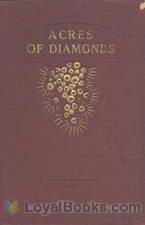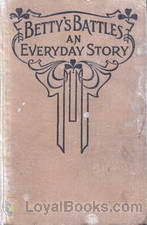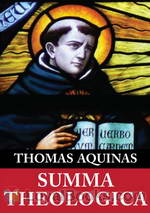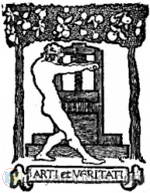|
Books Should Be Free Loyal Books Free Public Domain Audiobooks & eBook Downloads |
|
|
Books Should Be Free Loyal Books Free Public Domain Audiobooks & eBook Downloads |
|
Religion |
|---|
|
Book type:
Sort by:
View by:
|
By: Rufus Matthew Jones (1863-1948) | |
|---|---|
 Spiritual Reformers in the 16th & 17th Centuries
Spiritual Reformers in the 16th & 17th Centuries
| |
By: Russell Herman Conwell (1843-1925) | |
|---|---|
 Acres of Diamonds
Acres of Diamonds
Text of famous inspirational lecture and biography of Russell Conwell, a Baptist minister and Temple University Founder | |
By: S. (Samuel) Laing (1812-1897) | |
|---|---|
 An Expository Outline of the "Vestiges of the Natural History of Creation" With a Notice of the Author's "Explanations:" A Sequel to the Vestiges
An Expository Outline of the "Vestiges of the Natural History of Creation" With a Notice of the Author's "Explanations:" A Sequel to the Vestiges
| |
By: S. J. (Samuel John) Jerram | |
|---|---|
 Thoughts on a Revelation
Thoughts on a Revelation
| |
By: S. L. M. | |
|---|---|
 Betty's Battles an Everyday Story
Betty's Battles an Everyday Story
| |
By: S. O. Susag (1862-1952) | |
|---|---|
 Personal Experiences of S. O. Susag
Personal Experiences of S. O. Susag
| |
By: S. S. (Samuel Simon) Schmucker (1799-1873) | |
|---|---|
 American Lutheranism Vindicated; or, Examination of the Lutheran Symbols, on Certain Disputed Topics Including a Reply to the Plea of Rev. W. J. Mann
American Lutheranism Vindicated; or, Examination of the Lutheran Symbols, on Certain Disputed Topics Including a Reply to the Plea of Rev. W. J. Mann
| |
By: Saint Augustine (354-430) | |
|---|---|
 The Confessions of St. Augustine
The Confessions of St. Augustine
| |
By: Saint Jane Frances de Chantal (1572-1641) | |
|---|---|
 Selected Letters of Saint Jane Frances de Chantal
Selected Letters of Saint Jane Frances de Chantal
Saint Jane Frances de Chantal is a Roman Catholic Saint, who founded The Congregation of the Visitation after the death of her husband. St. Francis de Sales was her Spiritual Director and a close friend. After St. Francis de Sales died, St. Vincent de Paul became her spiritual director. These letters, which date from a range of 1611-1641, were written to her saintly spiritual directors, her children and relatives, other nuns and religious, as well many others. | |
By: Saint Therese (1873-1897) | |
|---|---|
 The Story of a Soul
The Story of a Soul
Marie Francoise Therese Martin, affectionately known as ‘The Little Flower’, was born on January 2, 1873, in Alencon, France to Louis Martin and Zelie Guerin. She was the youngest and one of five surviving sisters of the nine Martin children. When Therese was 3, her mother died. Louis Martin moved his family to Lisieux to be closer to his late wife’s brother and his family. It was there that Therese’s sister, Pauline, entered the Carmel at Lisieux on October 2, 1882. Therese at that time also heard the Divine Call to religious life... | |
By: Saint Thomas Aquinas (1225-1274) | |
|---|---|
 Summa Theologica, Pars Prima
Summa Theologica, Pars Prima
More than nine hundred years after it was first written, this unfinished work of a scholar saint still has the power to move our minds and hearts and set us thinking on the really important questions of life. Summa Theologica or simply the Summa as it is known, was written some time between 1265-74. It is a work that has had a profound and enduring influence on Western thought and literature. Designed to provide answers to Catholic theologians about the teachings of the Church, Thomas Aquinas' book instead goes far beyond its stated purpose... | |
 Summa Theologica - 06 Pars Prima Secundae, On the Last End, On Human Acts
Summa Theologica - 06 Pars Prima Secundae, On the Last End, On Human Acts
The Summa Theologica (or the Summa Theologiae or simply the Summa, written between 1265–1274) is the most famous work of Thomas Aquinas, even though it was never finished. It was intended as a manual for beginners and a compilation of all of the main theological teachings of that time. It summarizes the reasoning for almost all points of Christian theology in the West, which, before the Protestant Reformation, subsisted solely in the Roman Catholic Church. The Summa's topics follow a cycle: the existence of God, God's creation, Man, Man's purpose, Christ, the Sacraments, and back to God... | |
 Summa Theologica - 12 Pars Secunda Secundae, Treatise on Gratuitous Graces and the States of Life
Summa Theologica - 12 Pars Secunda Secundae, Treatise on Gratuitous Graces and the States of Life
The Summa Theologica (or the Summa Theologiae or simply the Summa, written 1265–1274) is the most famous work of Thomas Aquinas (c. 1225–1274) although it was never finished. It was intended as a manual for beginners and a compilation of all of the main theological teachings of that time. It summarizes the reasoning for almost all points of Christian theology in the West, which, before the Protestant Reformation, subsisted solely in the Roman Catholic Church. The Summa's topics follow a cycle: the existence of God, God's creation, Man, Man's purpose, Christ, the Sacraments, and back to God... | |
By: Samuel Butler (1835-1902) | |
|---|---|
 God the Known and God the Unknown
God the Known and God the Unknown
| |
 The Fair Haven
The Fair Haven
| |
By: Samuel D. Gordon (1859-1936) | |
|---|---|
 Quiet Talks on Prayer
Quiet Talks on Prayer
An open life, an open hand, open upward, is the pipe line of communication between the heart of God and this poor befooled old world. Our prayer is God’s opportunity to get into the world that would shut Him out. (From the first chapter) | |
 Quiet Talks about Jesus
Quiet Talks about Jesus
So far as I can find out, I have no theory about Jesus to make these talks fit into. I have tried to find out for myself what the old Book of God tells about Him. And here I am trying to tell to others, as simply as I can, what I found. It was by the tedious, twisting path of doubt that I climbed the hill of truth up to some of its summits of certainty. I am free to confess that I am ignorant of the subject treated here save for the statements of that Book, and for the assent within my own spirit to these statements, which has greatly deepened the impression they made, and make... | |
 Quiet Talks on the Crowned Christ of Revelation
Quiet Talks on the Crowned Christ of Revelation
| |
 Quiet Talks on John's Gospel
Quiet Talks on John's Gospel
| |
 Quiet Talks on Service
Quiet Talks on Service
| |
 Quiet Talks on Following the Christ
Quiet Talks on Following the Christ
| |
 Quiet Talks with World Winners
Quiet Talks with World Winners
| |
By: Samuel Davidson (1806-1898) | |
|---|---|
 The Canon of the Bible
The Canon of the Bible
| |
By: Samuel Graham Wilson (1858-1916) | |
|---|---|
 Bahaism and Its Claims A Study of the Religion Promulgated by Baha Ullah and Abdul Baha
Bahaism and Its Claims A Study of the Religion Promulgated by Baha Ullah and Abdul Baha
| |
By: Samuel Smiles (1812-1904) | |
|---|---|
 The Huguenots in France
The Huguenots in France
| |
By: Samuel Taylor Coleridge (1772-1834) | |
|---|---|
 Confessions of an Inquiring Spirit and Some Miscellaneous Pieces
Confessions of an Inquiring Spirit and Some Miscellaneous Pieces
| |
By: Samuel Ward (1577-1640) | |
|---|---|
 A Coal From The Altar, To Kindle The Holy Fire of Zeale In a Sermon Preached at a Generall Visitation at Ipswich
A Coal From The Altar, To Kindle The Holy Fire of Zeale In a Sermon Preached at a Generall Visitation at Ipswich
| |
By: Samuel Wilberforce (1805-1873) | |
|---|---|
 The Rocky Island and Other Similitudes
The Rocky Island and Other Similitudes
| |
By: Sanger Brown (1884-1968) | |
|---|---|
 The Sex Worship and Symbolism of Primitive Races An Interpretation
The Sex Worship and Symbolism of Primitive Races An Interpretation
| |
By: Sarah Doudney (1841-1926) | |
|---|---|
 Nelly Channell
Nelly Channell
Another fascinating book by the author of A Vanished Hand. Rhoda returns home after the death of her employer to find out that her cousin Helen, with whom she was raised, also returned home. Her husband stole 300 pounds and had to run away to Australia and leave her pregnant. Rhoda has to reconcile her shame and learn to cope with the new situation. But nothing is as it seems. More than anything, this book is about breaking stigmas and opening up your mind to understand and love people, despite their faults, usually with the help of God. Perfect for fans of good novels about crimes, stories about childhood, along with lovers of religious fiction. - Summary by Stav Nisser. | |
By: Sarah A. (Sarah Ann) Myers (1800-1876) | |
|---|---|
 Watch—Work—Wait Or, The Orphan's Victory
Watch—Work—Wait Or, The Orphan's Victory
| |